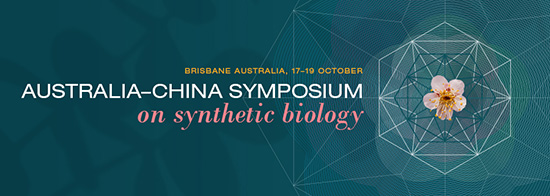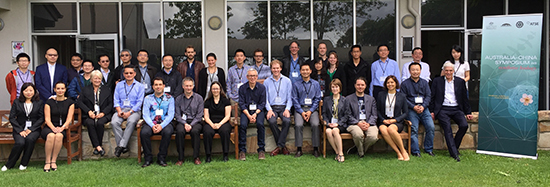
Some of Australia’s and China’s leading experts on synthetic biology met in Brisbane in mid-October to share the latest research. The Australia–China symposium on synthetic biology was the 13th in a series of annual scientific symposia jointly organised in collaboration with the Chinese Academy of Sciences (CAS) and the Australian Academy of Technology and Engineering (ATSE).
Synthetic biology is essentially the application of engineering principles to biology. It involves the design and construction of biological components for useful purposes, and has wide applicability across medical, agricultural and environmental biotechnology. At the symposium, Chinese and Australian researchers discussed their research on macromolecular design, engineering of biochemical pathways and genome-scale re-design of living organisms, as well as the ethical and regulatory implications of synthetic biology research.
The Australia–China Science Academies Symposia Series is one of three elements that make up the Australia–China Science and Research Fund (ACSRF). The ACSRF is jointly managed by the Australian Government Department of Industry, Innovation and Science and the Chinese Ministry of Science and Technology and its objective is to facilitate stronger collaborative ties between the two countries.
The symposium steering committee members were Professor Simon Foote FAA FTSE FAHMS, Professor Peter Gray AO FTSE and Professor Ian Small FAA who ably selected the Australian speakers. Professor Gray and Professor Small also attended the symposium to chair sessions.
The Australian academies were represented by Professor Andrew Holmes, President of the Australian Academy of Science, and Professor Kaye Basford, Vice-President of ATSE. Professor Jinghua Cao, Deputy Director of the CAS Bureau of International Cooperation led the Chinese delegation. In addition, the Embassy of the People’s Republic of China was represented by Mr Wang Qiang, Counsellor for Science and Technology, and representatives from the Australian Government Department of Industry, Innovation and Science also attended.
A key feature of this symposium was the participation of early- and mid-career researchers (EMCRs) from both countries. EMCRs were able to share some of their own research during a poster presentation session. The symposium also included visits to the Australian Institute for Bioengineering and Nanotechnology and the CSIRO Synthetic Biology Future Science Platform.

Synthetic biology aims to provide sustainable solutions to many grand challenges of modern society via innovations in therapeutics, agriculture, pharmaceuticals, energy, and bioremediation. There is considerable potential for China and Australia to cooperate and provide regional and international leadership for researching responses to these challenges. The conclusions of the participants and our Academies, Chinese and Australian, will provide a platform for enhancing collaboration between the two countries through innovative scientific, technological and engineering solutions.
The next symposium in this series will be held in Changchun, China at the CAS Institute of Optics, Fine Mechanics and Physics (CIOMP) on the topic ‘Light changes our life’.
International Events Coordinator
shannon.owen@science.org.au
International Events Coordinator
shannon.owen@science.org.au
© 2026 Australian Academy of Science